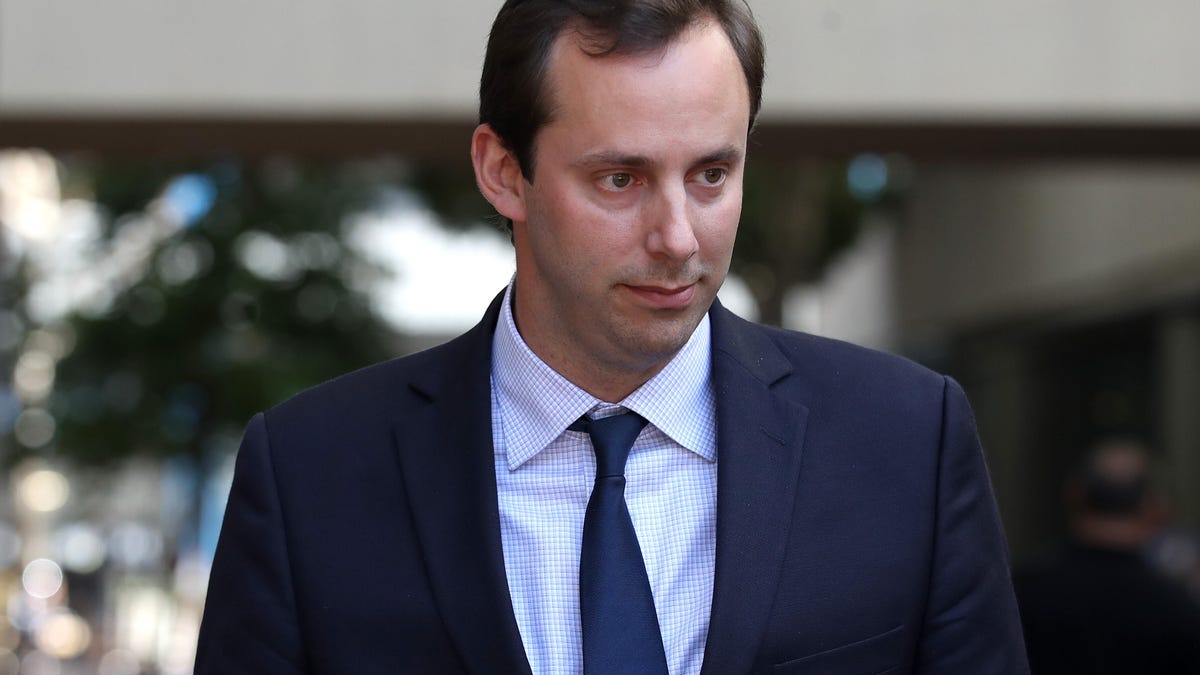Ex-Google engineer sentenced to 18 months in prison for trade secret theft
The engineer, Anthony Levandowski, was at the center of a bitter legal battle between Google and Uber.

Anthony Levandowski pleaded guilty to one count of trade secret theft.
Former Google engineer Anthony Levandowski was sentenced on Tuesday to 18 months in prison by a federal judge after pleading guilty to one count of trade secret theft from the search giant, the US Justice Department said. After he left Google, Levandowski brought stolen files related to self-driving car technology to Uber as he built out the rival's autonomous driving unit.
The theft spurred a high-profile and bitter lawsuit two years ago between Google's self-driving car arm, which was renamed Waymo, and Uber. The charges were focused on Levandowski's work with Otto, a self-driving trucking company that the engineer founded and that Uber acquired in 2016. Google alleged that Levandowski downloaded 14,000 "highly confidential" files describing self-driving technology research and brought them to Otto.
"This is the biggest trade secret crime I have ever seen," US District Judge William Alsup, who handed down the sentencing, said Tuesday. "This was not small. This was massive in scale."
Levandowski will be able to begin his jail time after the COVID-19 pandemic has passed, the Justice Department said. Alsup also ordered him to pay more than $756,000 in restitution to Waymo, as well as a $95,000 fine.
The sentencing is the culmination of the long-running legal drama between Waymo and Uber. The case, which went to trial in San Francisco two years ago, provided a rare glimpse into the high-stakes environment of big tech companies, which typically try to shield their inner workings from public view. But only days into the trial, which was expected to last at least three weeks, the two companies abruptly settled, giving Waymo 0.34 percent of Uber's equity.
Levandowski's attorney, as well as Uber, didn't immediately respond to requests for comment.
Waymo called the prison sentence a "win" for technology trade secret laws. "Anthony Levandowski's theft of autonomous technology trade secrets has been enormously disruptive and harmful to Waymo, constituted a betrayal, and the effects would likely have been even more severe had it gone undetected," a spokeswoman said.
In March, Levandowski was ordered to pay a $179 million fine to Google for the theft. Hours after the award was granted to Google, the engineer filed for Chapter 11 bankruptcy.
Last year, he was charged by the Justice Department with 33 counts of theft and attempted theft of trade secrets from Google. The indictment alleged that Levandowski stole secrets related to lidar (for "light detection and ranging") technology.
The tech allows self-driving cars to "see" their surroundings and detect traffic, pedestrians, bicyclists and other obstacles. The files downloaded by Levandowski allegedly included circuit board schematics, instructions for installing and testing lidar and an internal tracking document, the Justice Department said.
Even after the settlement between Waymo and Uber last year, Levandowski continued to develop self-driving technology with a new startup called Pronto.ai. After the indictment, Pronto said Levandowski would no longer serve as CEO of the startup.
CNET's Dara Kerr contributed to this report.

